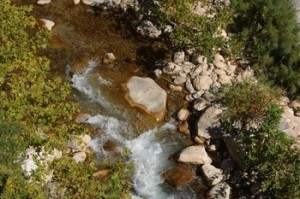Hydrogeology
Introduction:
Hydrogeology is a division of geology, the study of rocks and the components that are established over past periods of times. The way that sediments have been placed to make different levels of rock within the surface, or the way that rocks have been heated and folded over an incredible number of years to create complex components are the topics of geology.
A hydrogeologist is a researcher who studies groundwater systems. He or she performs field studies to determine the location, size, and movement of underground water reservoirs. Research hydrogeologists often evaluate soil, rock, and water samples in labs to check for pollutants and other abnormalities.
Importance of Hydrogeology:
Without the knowledge that hydrogeology gives us we have no way of forecasting what will happen to our water sources or the future results on the environment of water removal.
Groundwater – A Hidden Resource:
 In many parts of the world groundwater is the main source of water for day to day use. Boreholes driven down into the soaked layer under the ground generate water for irrigation and urban use. At least 1,500 million city residents are provided with water from groundwater supplies. It is also substantially used as a low cost rural water supply. Groundwater has many benefits. It is cheap to create because of its normally good quality and widespread occurence.
In many parts of the world groundwater is the main source of water for day to day use. Boreholes driven down into the soaked layer under the ground generate water for irrigation and urban use. At least 1,500 million city residents are provided with water from groundwater supplies. It is also substantially used as a low cost rural water supply. Groundwater has many benefits. It is cheap to create because of its normally good quality and widespread occurence.
Pollution:
Recently we have become more aware of environmental risks than we once were. Many nations, especially more financially developed nations, have regulations and recommendations to help protect the surroundings. Economic development brings industry and larger cities.
A Fragile Resource:
Groundwater is susceptible to pollution. Some of the functions of groundwater that create it so useful also create it a fragile resource. The way that groundwater goes under the surface of the earth means that even apparently well divided waste and water techniques can come into contact.


